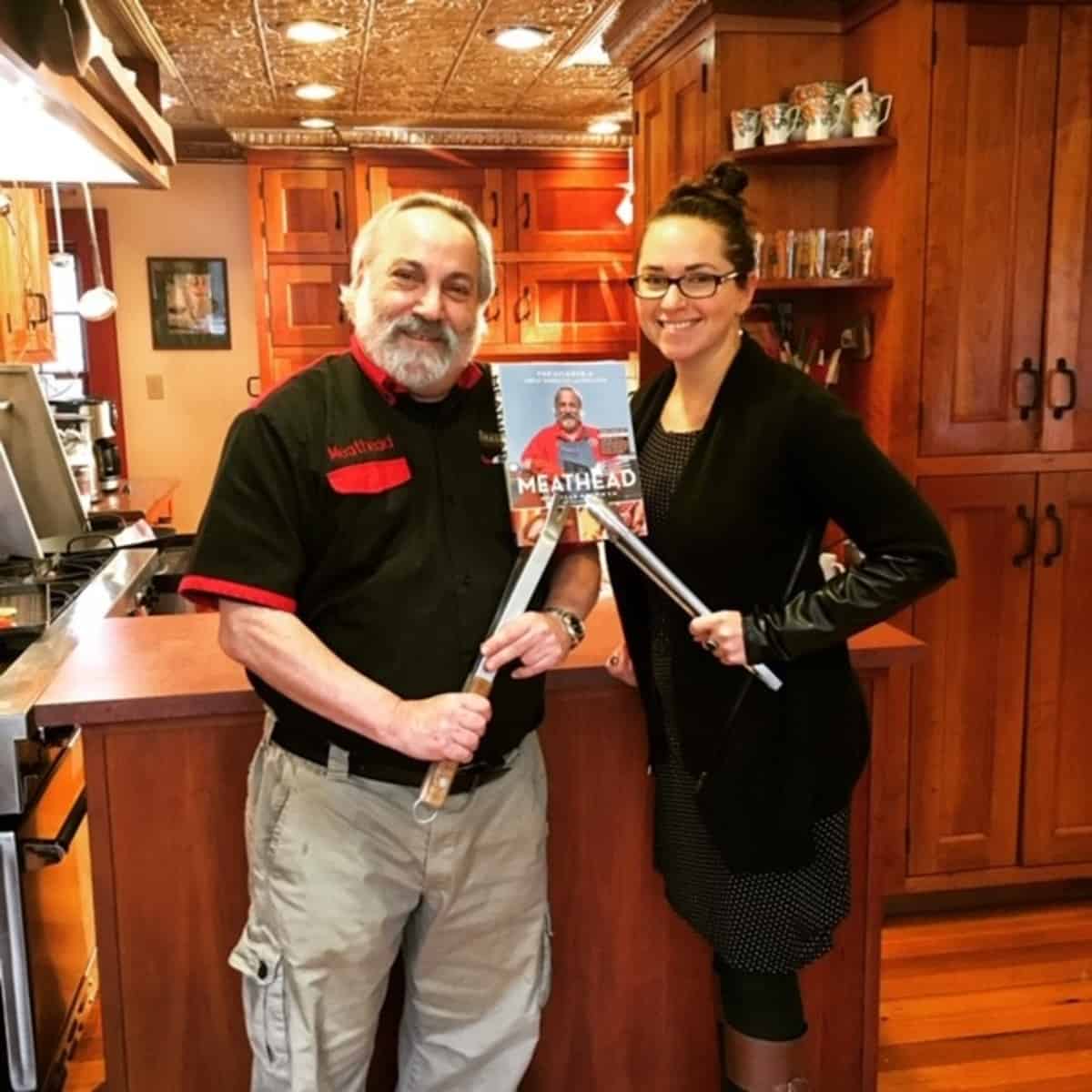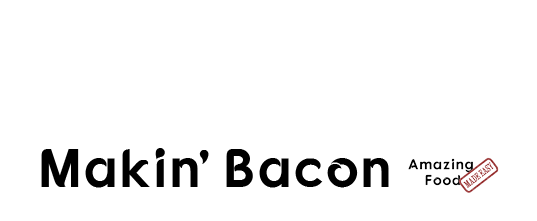 Written by Jason Logsdon
Written by Jason Logsdon
Whether to Self Publish or Publish Traditionally by Sally Ekus
Click to discover how to serve your Fans and grow your incomeA lot of food bloggers eventually turn their eyes towards putting out a cookbook. There's a lot that goes into it that's the same as creating a food blog. You have to create recipes, take good photographs, put it all together, and make sure you do it in a way that's going to resonate with your readers. So there's a lot of overlap.
Once you decided to do it, there's many different ways you can go about it, whether it's self publishing or trying to go through a traditional publisher. But self publishing and traditional publishing, while they do have a lot of overlap, there's a lot of differences between the two of them. And understanding what those differences are can help you better make that decision for your own circumstances.

In a recent podcast interview, I was talking to Sally Ekus from the Lisa Ekus Group. She's a literary agent and she's helped put out hundreds of different cookbooks. It's amazing the amount of food bloggers and cookbook authors she's worked with.
She has a unique insight on what it takes to self publish or traditionally publish. So I wanted to share some of the things we talked about so you can make a more informed decision on your own.
Here's What Sally Ekus and I Talked About
Jason Logsdon: We've been talking a lot about traditional publishing because you're an expert on it and you know a lot about self publishing too. What are your thoughts when someone says, okay, I have an audience, I'm ready to publish a book I think. Should I do this myself? Should I put together a proposal? Do I just write the book or use recipes from my blog? What goes into that decision-making process?
Sally Ekus: I'll pick out the latter part of the question very specifically first, which is if you want to repurpose content for the most part, then self publishing is the path for you because for the most part, in traditional publishing, publishers are going to require essentially 90% new content.
So you need to feed your blog new content to keep up ad revenue and to keep up your engagement while also producing behind the scenes content that will then be published in your book. That's one answer to your question.
3 Main Considerations of Publishing
Ultimately though, there are 3 considerations to review when you're thinking about traditional versus self publishing.
1) Distribution of Your Cookbook
Sally Ekus: Distribution being key. If you want to be the distributor of your book, and yes, it can have an ISPN number and live on Amazon and BarnesandNoble.com. But if ultimately those books are going to be in your garage or printed on demand, then fine, self publishing might be the path for you.
If you want your book to be sold into traditional bookstores and special sales accounts - which would be a non-traditional bookstore account, such as a cooking equipment store that has a handful of books or paper store that has a handful of books.
Then traditional publishing would be the path because they have a whole sales funnel set up to support the channels of distributing your book.

2) Cookbook Financials
Sally Ekus: Certainly, the financials. So if you know you can back the funding of your book, whether it's you doing the photography yourself because you also have the skill, or working with a collaborator and developing all the recipes, and testing all of it, in addition to the cost of printing, picking paper, hiring a designer, hiring a copy editor.
There's enormous value the publisher also brings to a table from an editorial, printing and production side. So if you have the funds to back the project and all of the resources, or you know, call the Lisa Ekus Group and say, "Hey, do you know a designer?", fine. Then self publishing might be the path for you.
But if it all sounds really overwhelming and you didn't listen to a thing I just said for the past 30 seconds, then traditional publishing is best.

3) Control Over the Process
Sally Ekus: And then ultimately also the sort of control, and I mean that in the best sense of the word. If you know exactly what you want your book to look, feel, and embody, because you know exactly what your community is asking for, then self publishing is great.
Or if you want to just play around and you have a lot of ideas and you want to test the water and say, "Hey, you know, is my audience going to buy a $19.95 book or are they really looking for 100 recipes on sous vide cocktails", then fine, self publish, test the water, use the information to then launch whatever the next thing is.
However, if you say, I have this great idea, I've shaped it into a proposal, but I really want a publisher's expertise on what is the marketplace doing and how are we going to reach them successfully, and really, what should that cover look like cause I'm not sure, or where should we go with the subtitle? You know, then traditional publishing would be the path for you.
And it's not to say you don't have input in it, but you would have consultation and conversation.

Really it comes down to is it traditional or self publishing? Think about distribution, financials and the control of the book process.
Very Different Experiences
Jason: They're very different beasts. Writing the cookbook is semi-similar, but everything that goes around it, they are completely different. How they work and some is good, and some is bad. I've enjoyed parts of both processes and I've been miserable during parts of both processes.
Sally: Was there overlap in the joy and the misery?

Jason: Sometimes. Yeah. I mean whenever you get the first book in the mail, it always makes you feel really good, but there's definitely disagreements about how things should be structured.
Especially for the last cookbook I did, I wanted to use photography, good photography. I had a lot of good photos and they went with stock photos that didn't show the dishes clearly. I pushed back and pushed back, and they were like, "Well, it says in the contract you can give your opinion, but that's it".
Sally: And that's where an agent can be really helpful. Because we have those difficult conversations and I would say 92% of the time they resolve really successfully.
It's hard because the publisher is going to try to save as much money as possible and to do that stock photos often make sense. That being said, let's be real, like the food bloggers who are listening to this are thinking, of course, my book's going to have photography in it, right? And they're going to want probably at least a photo with every recipe.

And so how do you then compromise and navigate the expectation into the confines of traditional publishing. This is what I spend 90% of my time doing is working out those conversations, ultimately to lead to what's best for the book.
There has been a handful of times where I've known deep in my heart that listening to the process of working though it takes a tremendous amount of time, but it is ultimately going to lead to the best interest of the book. And you know that book sells really well and it meets its audience, its fine, it finds its buyers, those that knew of the author and new audiences.
It's a long and hard conversation and there's no one path that's going to bring those answers to the table. And that's what's unique and challenging and fun about publishing.
Hybrid Publishing, Options #3
Sally: Another option is hybrid publishing, where you're bringing the benefits of each path to the table in selective ways.

So it's really great for brands who want to purchase a certain number of copies to distribute to their community, or to give out, or to sell in a special package. And it's sort of a way to have the distribution and shared financials while also maintaining some control and shaping of the whole process.
And you know, it can be a great resource for people who are in a unique position to do it.
Jason: What type of companies are involved in the hybrid processing?
Sally: In some cases, traditional publishers, but not always. There are certain hybrid publishers who bring the distribution to the table, although you're paying for their services.
Then in the traditional space, there are select publishers, who when a company or brand or entity is committing to a contractual buyback, will agree to print and distribute and offer editorial services for the book. But it's still you, you still need to pitch and position it in a certain way.
Jason: That makes sense, a little bit of the best of both worlds, especially if you have specific goals that can really help to reach those goals.
Sally: Yeah. Yeah. And we love doing those kinds of deals because you still need to advocate on behalf of the author brand in their best interest because they have a very specific vision for what this book needs to look and feel like. And the nuance of that deal can be really exciting because you're bringing two entities to the table who are both offering something really strong.
Jason: That's good, they can both focus on their strengths, which is great.
If you want to read some more about this, here are a few helpful links.
- How to Choose a Cookbook Subject
- What Are Your Cookbook Goals?
- Write Your Cookbook with Other People
- Why Reuse, Reuse, Reuse is a Superpower
- Connect to Your Audience Using YOUR Story with Abby Rike
How do you decide the best way to publish your cookbook? Let me know in the Makin Bacon Facebook Group or the comments below.
 Hi, I'm Jason Logsdon! I'm an adventurous home cook and the head writer and photographer for Amazing Food Made Easy. I grew my income to 6-figures by focusing on serving my Fans by providing massive value, and I want to help you do the same.
Hi, I'm Jason Logsdon! I'm an adventurous home cook and the head writer and photographer for Amazing Food Made Easy. I grew my income to 6-figures by focusing on serving my Fans by providing massive value, and I want to help you do the same.














